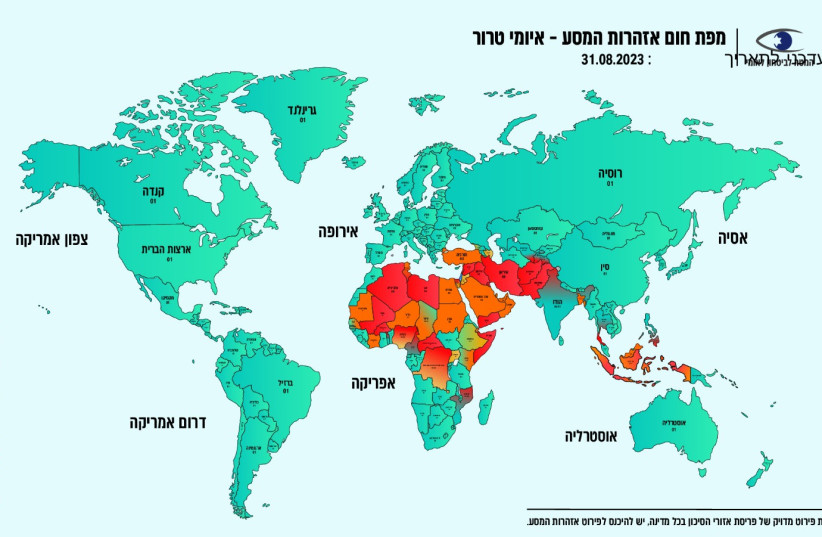Israelis are in danger of kidnapping attempts at home and abroad by Hamas and the Palestinian Islamic Jihad so they can use those captives as bargaining chips, the country’s National Security Council’s counterterrorism Division said on Thursday.
“Hamas and PIJ officials have been highly motivated recently to carry out kidnapping within the country in order to increase the movement’s bargaining chips,” the NSC said.
“It is not impossible that the organizations will strive to promote kidnapping attacks of Israelis and Jews outside the country's borders,” it added.
The counterterrorism division issued its warning in advance of the Jewish holiday period when many Israelis travel within and without the country. It spoke out amid a terror wave in Israel, which Prime Minister Benjamin Netanyahu and Defense Minister Yoav Gallant have pinned on Iran.
The counterterrorism division’s statement included warnings on Iran as well as terror alerts in Sweden and Denmark due to incidents of Quran burning in those countries.
With respect to Hamas and PIJ, it noted that they have eyed kidnapping plots given that talks for the return of the bodies of two Israeli soldiers and to free two Israeli captives held in Gaza have hit an impasse.

Iran’s neighboring countries such as Georgia, Azerbaijan, Turkey, and the Kurdish region are most likely to be targeted by Iranian terror efforts.
Countries in the Mediterranean basin, Africa and Latin America are also at risk, the counterterrorism division said, but it did not elaborate further on the matter.
It did note that Sweden and Denmark are increasingly vulnerable to terror attacks due to incidents of Koran burning by activists there. Sweden has raised the internal threat level to the highest level, it added.
Global jihad groups and radical Islam organizations have shown an “increased interest” in harming Israelis and Jews and also “call on their supporters to harm Jews around the world,” the counterterrorism division stated.
Individuals inspired by these organizations to carry out attacks against Israelis and Jews pose a major threat, it said.
These organizations focus most of their activity in Africa, the Middle East, Asia and Europe, it added.
Terror threat still exists in Egypt's Sinai Peninsula
A terror threat still exists in Sinai, the counterterrorism division stated. Israelis visiting there should stay in known tourist sites along the coastal strip and Sharm el-Sheikh, where Egyptian security forces are present, the counterterrorism division said.
Jewish communities abroad face a “major threat” from extreme right-wing terrorism, the division stated. These groups specifically target Jewish religious and community institutions, particularly during prayer services and holiday times.
“In recent years, terrorist attacks have been carried out against religious institutions throughout Europe and America, based on antisemitic ideological motives against Jews,” the counterterrorism division stated.
Ir reminded Israelis that a ban existed on travel to enemy countries such as Lebanon, Syria, Iraq, Yemen and Iran, even for those who have Israelis with second passports from other countries.
“While staying in these countries, the Israeli citizen is exposed to a higher risk of kidnapping incidents and/ or injury to his life,” the counterterrorism division said.
It pointed to the kidnapping this year of an Israeli Princeton graduate student Elizabeth Tsurkov with a Russian passport this year while doing research in Iraq, as an example of such a danger.
Israel should continue to travel, it said, but they must be vigilant and adhere to the recommendations on the National Security Council's site.
